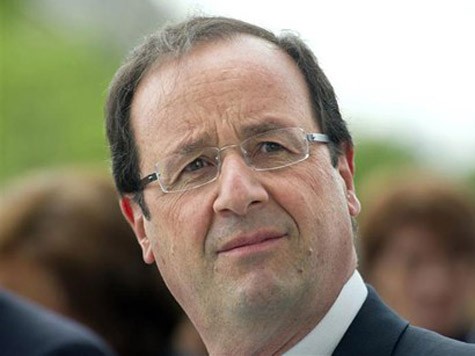France presents its 2013 budget Friday with President Francois Hollande’s Socialist government set to boost taxes on the rich and businesses in a bid to hit tough deficit-reduction targets.
Presenting his first annual budget since being elected in May, Hollande’s credibility is on the line as he seeks to rein in public finances and reassure financial markets without stirring public anger.
Officials have said about 30 billion euros ($39 billion) in savings are needed to reach a target of reducing the deficit to three percent of Gross Domestic Product in 2013 from a forecast of 4.5 percent this year.
To reach the goal, officials have said the budget will target 10 billion euros in extra taxes on high-income households, 10 billion from taxes on businesses and 10 billion in spending cuts.
Speaking on public television Thursday, Prime Minister Jean-Marc Ayrault vowed the deficit target would be met, saying it was vital for France to avoid the rising borrowing rates that have hit other eurozone economies.
France has so far been spared the rise in government borrowing costs hurting some fellow eurozone members, instead paying historically low interest rates as investors look for safer havens.
But signs that Hollande is not taking deficit-cutting seriously could see the markets turn on France, lumping in Europe’s second-largest economy with its struggling southern neighbours and sending borrowing costs up.
Ayrault also stood by the government’s growth forecast of 0.8 percent for 2013, saying it was “realistic” and “attainable” despite concerns from some economists that the forecast is too optimistic.
The budget is expected to introduce a fiscal reform taxing capital gains, interest and dividends as regular income, as well as a populist move to impose a 75 percent tax rate on incomes above one million euros.
Ayrault said the increases would affect only the top 10 percent of French taxpayers.
He said the 75 percent tax rate would affect only a “small minority” of 2,000 to 3,000 taxpayers.
Ayrault also reiterated there would be no increase in the value-added tax or the CSG social welfare tax in 2013.
After defeating incumbent right-winger Nicolas Sarkozy on a growth and jobs platform, Hollande has been keen to avoid any appearance that his government is pushing austerity.
But with unemployment steadily on the rise — joblessness topped three million for the first time in more than a decade in August — Hollande is under increasing pressure and has seen his popularity falling.
Unions and left-wing groups have threatened strikes and protests if the Socialists impose too much austerity, with a demonstration already planned for Sunday against a European Union fiscal pact that sets strict deficit limits.

COMMENTS
Please let us know if you're having issues with commenting.